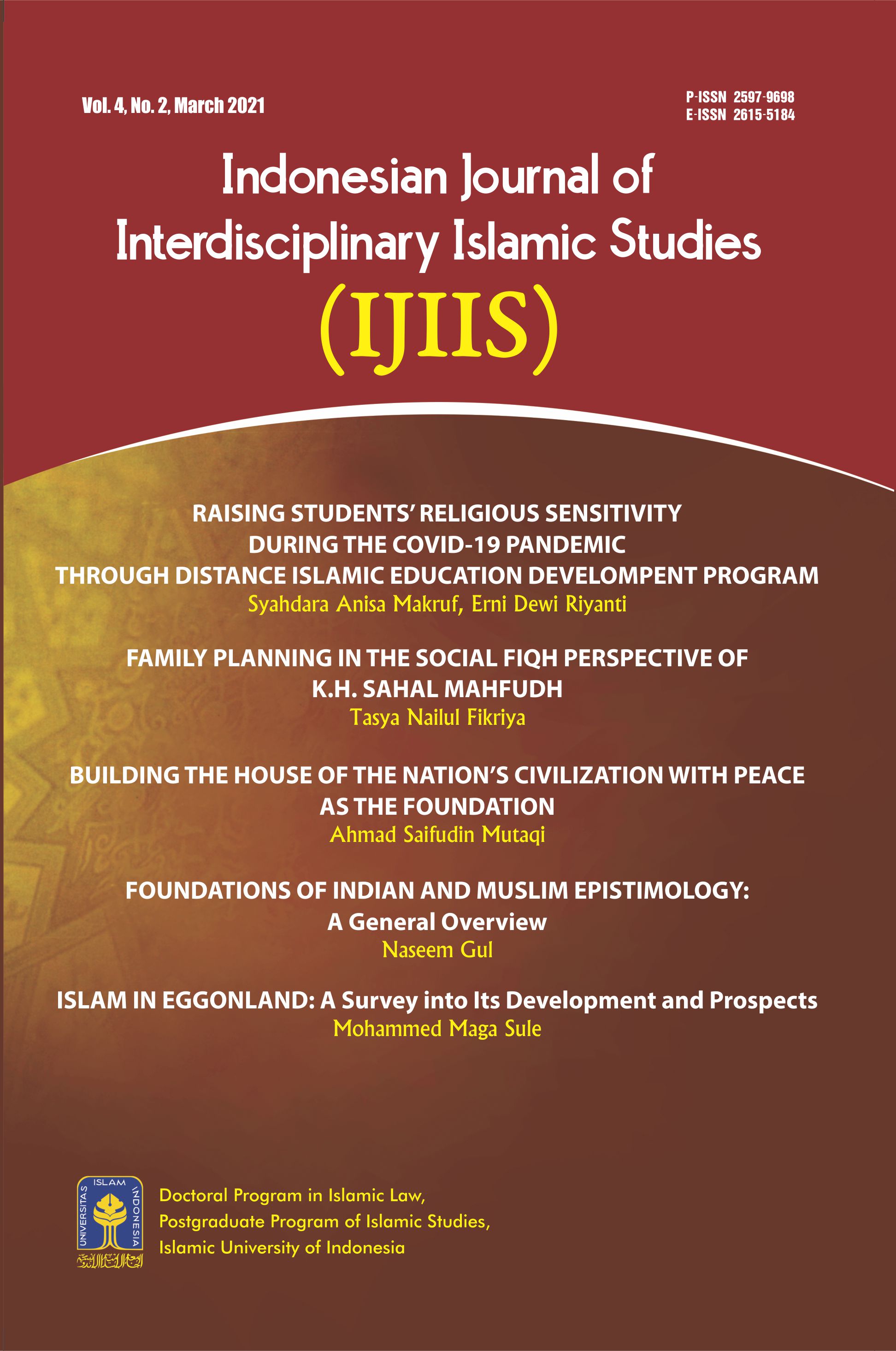Main Article Content
Abstract
Resistance to Indonesia's diversity can still be seen in the various incidents of intolerance and discrimination that occurred with political and religious backgrounds. There have been a number of issued government regulations that led to various interpretations and resulted in unjust public services, especially for some minority groups. It is not necessary for the government to impose restrictions on a person's basic religious practices or beliefs and regulate what kind of clothing a woman should wear, nor do they need to regulate what the physical form of a place of worship should be. Likewise, fellow citizens who interpret these regulations by themselves have the potential to decrease the public order. Hence the role of the state officials in enforcing the law is very important to achieve a peaceful society. Culturally, the reconciliation mechanisms in society can be developed when there is a desire to carry out a healthy dialogue. People are used to talking about different basic matters and they are respecting these differences so that they can work together for the benefit of the society. Dialogue is a communication process that considers semantic and pragmatic principles, where conversations with mutual understanding, acceptance, peaceful life and cooperation for mutual prosperity will arise. The atmosphere of a peaceful life is an important foundation for constructing a "house" of the nation's civilization. An important question that needs to be answered in this research is "what is the attitude of Islam in building peace to achieve the nation’s civilization?" This study seeks to explore the practical experiences of community life carried out by religious minority groups in responding to generally unfavorable situations. The research sources involved personal experiences and the spiritual leader’s statements that is implemented by the community members. It is hoped that the conclusion of this study will provide a positive and inspirational picture for the joint efforts of building the civilization of the society.
Keywords
Article Details

This work is licensed under a Creative Commons Attribution-ShareAlike 4.0 International License.
References
- Abdul Mustakim, Bela Negara Dalam Perspektif Al-Quran, Sebuah Transformasi Makna Jihad, Universitas Islam Negeri Sunan Kalijaga, Yogyakarta, Analisis, Volume XI, Nomor 1, Juni 2011.
- Aslati, Toleransi Antar Umat Beragama Dalam Perspektif Islam, Suatu Tinjauan Historis, https://bit.ly/3smRrRA diunduh pada tanggal 24 Februari 2021.
- Alifuddin Ikhsan, Nilai-nilai Cinta Tanah Air Dalam Perspektif Islam, Program Studi Magister Pendidikan Pancasila dan Kewarganegaraan Universitas Negeri Malang, Jurnal JIPPK, Volume 2, Nomor 2, Halaman 108-114.
- Habsi Indra, Pandangan Islam tentang Ilmu Pengetahuan dan Refleksinya terhadap Aktifitas Pendidikan Sains di Dunia Islam, MIQOT Vol. XXXIII No. 2 Juli-Desember 2009.
- Hendrikus Otniel Nasozaro, Peranan Hukum Dalam Kehidupan Berdemokrasi di Indonesia, Jurnal Warta Edisi:58 - Oktober 2018.
- Simon Fischer, Mengelola Konflik: Ketrampilan dan Strategi untuk Bertindak, SMK Grafika Putra, Jakarta, 2000.
References
Abdul Mustakim, Bela Negara Dalam Perspektif Al-Quran, Sebuah Transformasi Makna Jihad, Universitas Islam Negeri Sunan Kalijaga, Yogyakarta, Analisis, Volume XI, Nomor 1, Juni 2011.
Aslati, Toleransi Antar Umat Beragama Dalam Perspektif Islam, Suatu Tinjauan Historis, https://bit.ly/3smRrRA diunduh pada tanggal 24 Februari 2021.
Alifuddin Ikhsan, Nilai-nilai Cinta Tanah Air Dalam Perspektif Islam, Program Studi Magister Pendidikan Pancasila dan Kewarganegaraan Universitas Negeri Malang, Jurnal JIPPK, Volume 2, Nomor 2, Halaman 108-114.
Habsi Indra, Pandangan Islam tentang Ilmu Pengetahuan dan Refleksinya terhadap Aktifitas Pendidikan Sains di Dunia Islam, MIQOT Vol. XXXIII No. 2 Juli-Desember 2009.
Hendrikus Otniel Nasozaro, Peranan Hukum Dalam Kehidupan Berdemokrasi di Indonesia, Jurnal Warta Edisi:58 - Oktober 2018.
Simon Fischer, Mengelola Konflik: Ketrampilan dan Strategi untuk Bertindak, SMK Grafika Putra, Jakarta, 2000.
